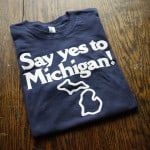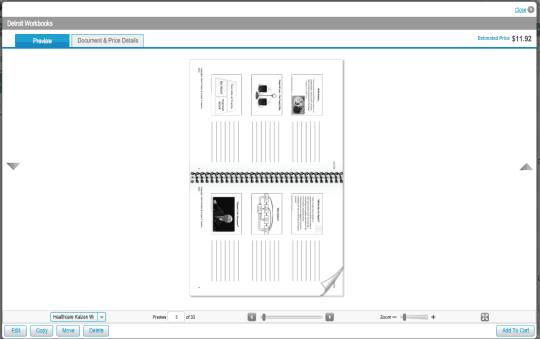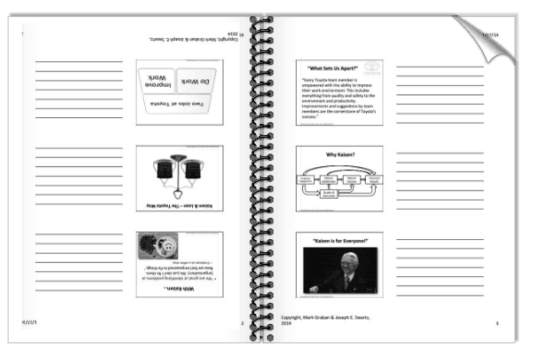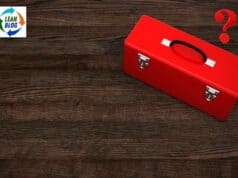 I'm in my home town of Livonia, Michigan this week, having arrived to the snow and cold yesterday, staying through Thursday. Boy, my blood has really “thinned out” from 15 years of mostly living in Texas or Arizona.
I'm in my home town of Livonia, Michigan this week, having arrived to the snow and cold yesterday, staying through Thursday. Boy, my blood has really “thinned out” from 15 years of mostly living in Texas or Arizona.
I made sure my rental car (a very mediocre Ford Fusion) has heated seats. I also made sure to rent an American car, this being Detroit and all, but then I wondered if the Fusion was built in Mexico (based on the VIN number, it was indeed built in Hermosillo, Mexico and not Flat Rock, MI. I should have rented a Kentucky-built Toyota Camry, but, like I said… I really wanted those heated seats. At least the car “seems” American, which is still important here.
So, anyway on to the Kaizen stories.
Martin Luther King, Jr. Holiday
First, a quick look back to a quote I posted on this day in 2012.
Kaizen for our Kaizen Workshop
The sold-out Healthcare Kaizen workshop that Joe Swartz and I are doing is going to be held on Wednesday (in Farmington Hills, the town just north of Livonia). I've normally done printed “notes handouts” that have the slides 2 or 3 to a page, with space for people to write notes. People generally use these and scribble a lot down. I often make the full sized slides available as a PDF for people if they ask (some of the pictures and Kaizen examples are hard to see when small).
My Kaizen idea was to ask attendees if they actually wanted a book. I don't think it would be a good Kaizen practice for me to just unilaterally stop doing the book, because the book might be “value” according to a particular customer. Each customer might have a different view, so instead of taking a vote, I did a survey that each attendee could answer.
I offered each attendee a choice:
- Take the printed notes workbook (I'm happy to provide it) OR
- Take a $10 refund (since the books each cost just under $10 to have done at FedEx Office)
I already give attendees the choice to register for the class WITH a copy of Healthcare Kaizen or they can register for a lower price and NOT get the book (maybe they already have a copy).
Back to the workbooks… six of the 24 attendees took what I called “the green option” of saving the paper and NOT taking the paper workbook. I wasn't trying to guilt anybody, but it seems to reduce paper waste to do this (I realize servers that hold and send PDFs use electricity and aren't waste free, either).
I also gave attendees the choice of taking a $10 Amazon gift card (if their organization allowed that, assuming they could put $10 toward a book purchase for their department if the paperwork and bureaucracy for processing a $10 refund wouldn't be worth it). Or, I was able to just put $10 back on their credit card, thanks to Eventbrite making that easy.
People taking “the green option” didn't save me any time, since getting 18 books versus 24 books printed is the exact same amount of time for me. Processing the refunds took a few minutes. It's going to be a bit more complicated when attendees show up, because now some people will get the workbooks and some won't.
In “PDSA” or Plan-Do-Study-Adjust style, I've planned and I've done. I'll study and either keep doing it this way or I'll just go back to giving everybody a workbook. I'll see how this plays out. I have a hypothesis that this new way is, all in all, better. But the test is not yet complete.
The Defect I Discovered Today
Thankfully, with technology, I don't have to carry the notes workbooks with me from San Antonio. I generally use FedEx Office (formerly Kinko's) and their online printing service. I can upload a file and “ship bits” instead of “shipping paper” to a store in different cities. In this case, there's a Kinko's real close to my parents' house here.
As an aside… I'm not, temporarily, the stereotypical “blogger living in my parents' basement” this week. I'm in my old childhood bedroom and I'm just here for four days.
I reduced the shipping waste and sent the order off on Friday. I told them I didn't need the books until Tuesday. I got a phone call and email on Saturday telling me they were already done. This might seem like the “waste of overproduction” (making them earlier than needed), but I had pre-paid the order online and they might have been “level loading” (see heijunka) their work by doing the job on Saturday when things were slow instead of waiting until Monday. That's their choice and it probably makes sense (the “inventory” didn't take up much space in their store).
I had time on Sunday to go pick up the workbooks. I inspected the results (knowing from past experience that FedEx Office might produce a defect in way or another). I found a defect.
Every single workbook had been printed where the left-hand page was flipped upside down. I was going to need the books re-done. They had never produced that failure mode before.
The woman working there said she would talk to her manager on Monday about re-printing the books. I told her I'm pretty sure I didn't select the “head to tail” double sided printing option. She said, “Well, we're told to produce them the way the computer says… because sometimes people have a reason.”
I asked, “It seems like common sense to print them with all pages being right side up.” I asked her why they didn't call and ask me if I really wanted the books printed that way. She didn't know why. They called me to confirm that the order was done (which was actually unnecessary because they had already emailed me through the automated system).
I got to my parents' house and pulled up my online “proof” because the document was stored online. Turns out, this is what I submitted (looking correct) – click for a larger view.
You can see with the binding that the online proof shows how it should have been done. What they produced basically looked like this:
I don't know if the failure mode was their online system or if somebody in the store made a mistake.
It's not exactly “Kaizen” for them to re-print the books. Fixing a defect doesn't count as process improvement. That's fire-fighting. Thankfully, we still have time before I have to pick up the books on Tuesday afternoon.
I hope FedEx Office would investigate the error and figure out how it happened so they can do real process improvement – changing the system in some way that prevents the problem from happening again for me or other customers. They're likely going to eat the cost for this reprinting.
I'm guessing, but it's possible that the store personnel made an error. I had a second, separate print job where I *did* specify printing “head to toe” (these Kaizen cards that have the back side purposefully upside down).
They have seen the instructions for Order #2 (the cards) and applied it to the separate Order #1 (the workbooks). I really had to struggle to find the setting in the FedEx system to print the backside “upside down,” so it's really unlikely that I accidentally set it that way for the workbooks (and I have the digital proof as, well proof).
I'll give more reports from my time in Michigan, including my visit to Menlo Innovations on Monday morning (listen to my podcast with CEO Rich Sheridan), visiting friends at the University of Michigan Health System Monday afternoon, seeing the “Detroit Auto Show” on Tuesday, and our Wednesday workshop. Oh, and a Red Wings game Monday night! Say “Yes! to Michigan” (although I now consider Texas to be home).
Photo via user CityBird on Etsy – buy a shirt here
Please scroll down (or click) to post a comment. Connect with me on LinkedIn.
If you’re working to build a culture where people feel safe to speak up, solve problems, and improve every day, I’d be glad to help. Let’s talk about how to strengthen Psychological Safety and Continuous Improvement in your organization.











I am looking forward to your presentation on Wednesday. I didn’t get to respond to your no print option. I didn’t need the book as I will have my tablet. So you could print one less!
See you Wednesday!
Thanks, Heather!
FedEx Office did re-print the handbooks for me for no additional charge…
Mark — great aricle until the Red Wings update, sorry I’m a Sharks fan and the two don’t mix… :)
Comments are closed.